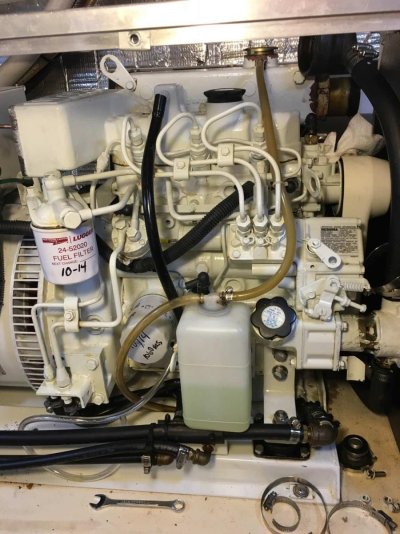Arthurc
Guru
Hi,
I have an older 20kw genset which needs to be replaced but in the meantime I was thinking about getting something smaller (5kw range) in addition to a larger set. The larger is only needed to power the 3 AC units which rarely will get used so wondering if folks had done something similar. I heard NextGen units are good, compact and quiet?
Any thoughts or advice would be appreciated. I have a yard evaluating the space requirements, etc so its more a question of which units are best should they say we can do the auxiliary unit.
Thanks
Arthur
I have an older 20kw genset which needs to be replaced but in the meantime I was thinking about getting something smaller (5kw range) in addition to a larger set. The larger is only needed to power the 3 AC units which rarely will get used so wondering if folks had done something similar. I heard NextGen units are good, compact and quiet?
Any thoughts or advice would be appreciated. I have a yard evaluating the space requirements, etc so its more a question of which units are best should they say we can do the auxiliary unit.
Thanks
Arthur


